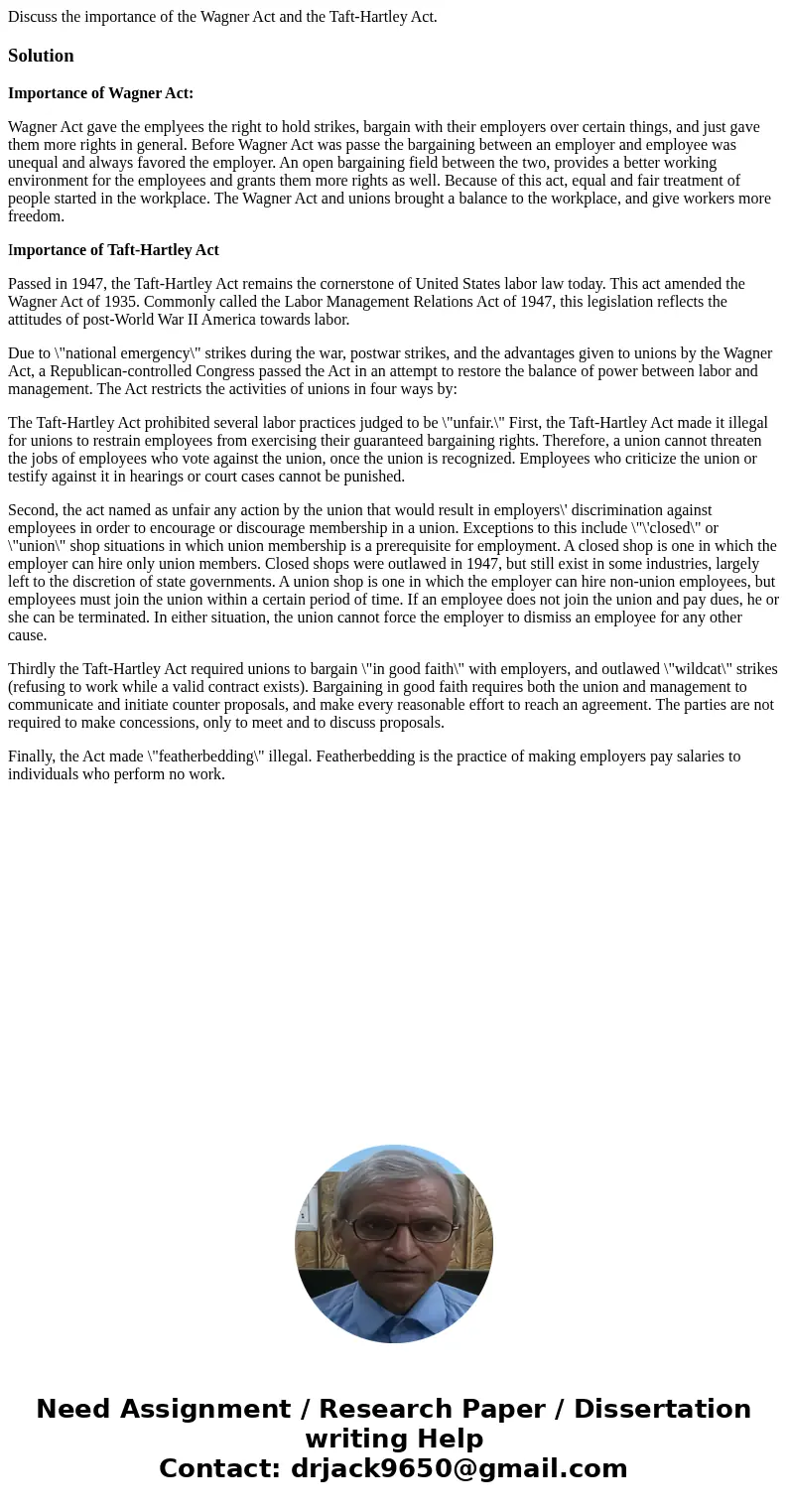Discuss the importance of the Wagner Act and the TaftHartley
Discuss the importance of the Wagner Act and the Taft-Hartley Act.
Solution
Importance of Wagner Act:
Wagner Act gave the emplyees the right to hold strikes, bargain with their employers over certain things, and just gave them more rights in general. Before Wagner Act was passe the bargaining between an employer and employee was unequal and always favored the employer. An open bargaining field between the two, provides a better working environment for the employees and grants them more rights as well. Because of this act, equal and fair treatment of people started in the workplace. The Wagner Act and unions brought a balance to the workplace, and give workers more freedom.
Importance of Taft-Hartley Act
Passed in 1947, the Taft-Hartley Act remains the cornerstone of United States labor law today. This act amended the Wagner Act of 1935. Commonly called the Labor Management Relations Act of 1947, this legislation reflects the attitudes of post-World War II America towards labor.
Due to \"national emergency\" strikes during the war, postwar strikes, and the advantages given to unions by the Wagner Act, a Republican-controlled Congress passed the Act in an attempt to restore the balance of power between labor and management. The Act restricts the activities of unions in four ways by:
The Taft-Hartley Act prohibited several labor practices judged to be \"unfair.\" First, the Taft-Hartley Act made it illegal for unions to restrain employees from exercising their guaranteed bargaining rights. Therefore, a union cannot threaten the jobs of employees who vote against the union, once the union is recognized. Employees who criticize the union or testify against it in hearings or court cases cannot be punished.
Second, the act named as unfair any action by the union that would result in employers\' discrimination against employees in order to encourage or discourage membership in a union. Exceptions to this include \"\'closed\" or \"union\" shop situations in which union membership is a prerequisite for employment. A closed shop is one in which the employer can hire only union members. Closed shops were outlawed in 1947, but still exist in some industries, largely left to the discretion of state governments. A union shop is one in which the employer can hire non-union employees, but employees must join the union within a certain period of time. If an employee does not join the union and pay dues, he or she can be terminated. In either situation, the union cannot force the employer to dismiss an employee for any other cause.
Thirdly the Taft-Hartley Act required unions to bargain \"in good faith\" with employers, and outlawed \"wildcat\" strikes (refusing to work while a valid contract exists). Bargaining in good faith requires both the union and management to communicate and initiate counter proposals, and make every reasonable effort to reach an agreement. The parties are not required to make concessions, only to meet and to discuss proposals.
Finally, the Act made \"featherbedding\" illegal. Featherbedding is the practice of making employers pay salaries to individuals who perform no work.

 Homework Sourse
Homework Sourse